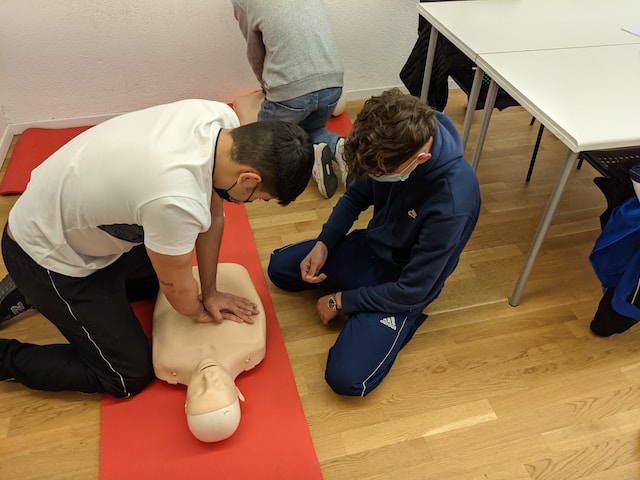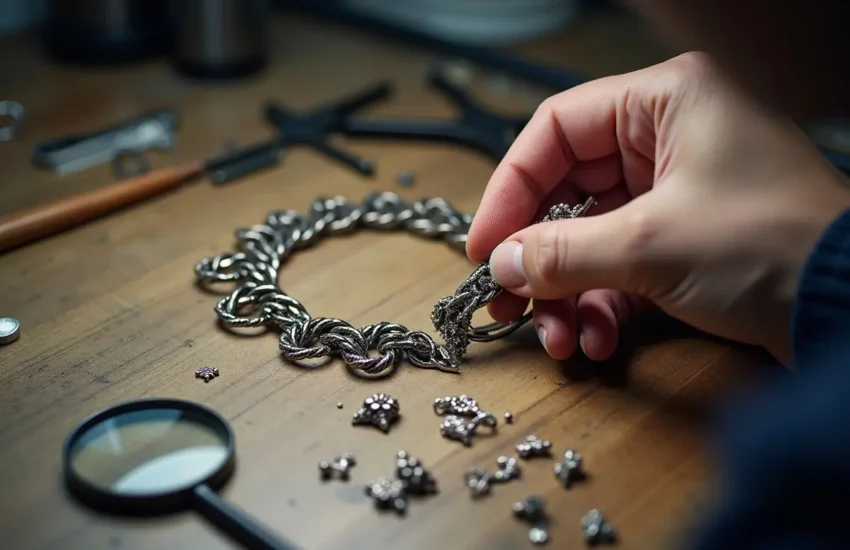Life-Saving Lessons: The Importance of Taking a First Aid Course
In today’s whirlwind of activities and commitments, it’s all too common to ignore the crucial need to be equipped for unforeseen emergencies. Accidents are unpredictable and can strike at any time. Having a fundamental understanding of first aid can be pivotal, transforming a potentially dire situation into one with a speedy and positive resolution.

1. Empowerment Through Education
Knowledge is power, especially when it comes to first aid. Taking a first aid course equips you with the fundamental skills needed to respond confidently in emergencies. From assessing injuries to performing CPR, the training empowers you to be a proactive first responder in critical situations.
2. The Chain of Survival: You Can Be the Link
Imagine a scenario where someone collapses suddenly. The first few minutes are crucial, often referred to as the “chain of survival.” Your prompt and informed actions can be the link that keeps this chain intact. First aid courses teach you how to recognize the signs of a medical emergency and act swiftly, potentially saving a life.
3. Immediate Response for Immediate Results
The speed at which first aid is administered can significantly alter the results of an emergency. Be it a car crash, a sudden heart attack, or a choking incident, understanding the right actions to take promptly can mitigate additional injuries and enhance the chances of a successful recovery. In a reality where every minute matters, being thoroughly prepared is essential.
4. Everyday Heroes: It Could Be You
Emergencies can happen anywhere – at home, at work, or even in public spaces. Picture yourself as the everyday hero who steps up during a crisis. A first aid course transforms you from a bystander to someone who can make a real difference. Your actions can provide comfort, alleviate pain, and, in some cases, save a life.
5. Navigating the Basics: What First Aid Courses Cover
First aid courses cover a broad spectrum of skills, ensuring you’re well-prepared for diverse situations. Some of the essential topics include:
a. CPR (Cardiopulmonary Resuscitation):
- How to recognize cardiac arrest
- Hands-on chest compression techniques
- Using automated external defibrillators (AEDs)
b. Choking:
- Techniques to help a choking victim
- Recognizing different choking scenarios
c. Wound Care:
- Cleaning and dressing wounds
- Understanding different types of wounds
d. Fractures and Sprains:
- Recognizing fractures and sprains
- Providing initial care and support
e. Medical Emergencies:
- Dealing with seizures and diabetic emergencies
- Administering medication in emergency situations
6. Building Community Resilience
Communities thrive when individuals are prepared and capable of responding to emergencies. By taking a first aid course, you contribute to the overall resilience of your community. Your knowledge becomes a valuable asset during natural disasters, accidents, or unforeseen health crises.
7. Beyond the Physical: Mental Health First Aid
First aid isn’t just about physical injuries; it also extends to mental health. Some courses incorporate mental health first aid, teaching you how to recognize signs of distress, provide initial support, and guide someone towards professional help. Mental health first aid is a crucial aspect of creating a compassionate and supportive community.
8. Workplace Safety: A Priority
For those spending a significant portion of their day at work, the importance of first aid is amplified. Many workplace first aid courses are tailored to address industry-specific risks and scenarios. From construction sites to office spaces, having trained individuals on-site can make a significant impact on employee safety.
9. The Confidence Boost: Being Prepared in the Face of Fear
Emergencies are naturally overwhelming, and fear can often immobilize even the most willing helper. Through first aid training, you gain essential skills and the confidence to act swiftly in scary situations. This confidence can significantly alter outcomes in crucial moments.
10. A Lifelong Skill: The Gift That Keeps Giving
First aid is a skill that, unlike fleeting trends, remains with you throughout your life. Once you’ve learned first aid, you take this valuable knowledge everywhere. It’s not just about your safety but also about the safety of those around you. By mastering first aid, you become a beacon of safety and support in your community, ready to lend a helping hand in times of need. So, embrace this lifelong skill, as it is truly the gift that keeps giving.
Conclusion: Taking the First Step Towards Safety
Learning first aid is far more than just adding another ability to your repertoire; it represents a commitment to your own health and that of your community. Embarking on this journey of first aid education, bear in mind that each skill you acquire is a stride towards a more protected and confident future.


